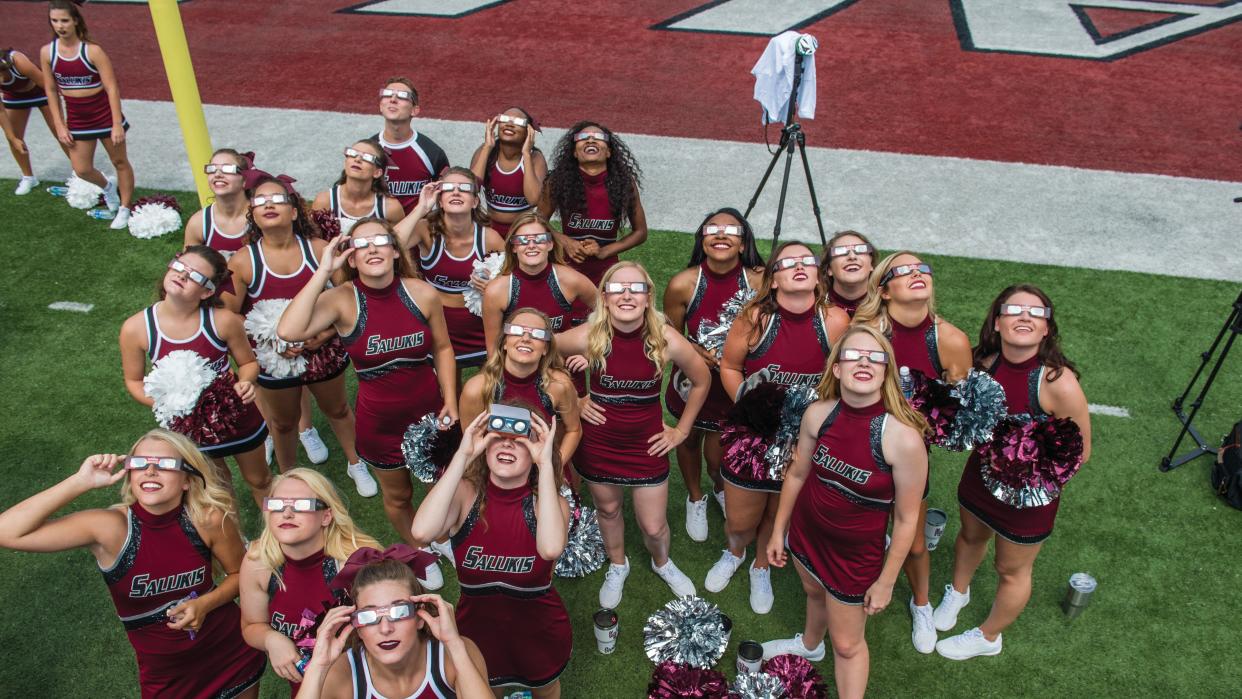Southern Illinois will get its 2nd solar eclipse in a decade this year

It's already rare for a single location to experience a total solar eclipse — but for cities like Carbondale, Illinois, the odds have been ever in its favor. A lucky seven years ago, it was in part of the solar eclipse path of totality, and it will be this year as well.
"To have two total solar eclipses in a decade is truly extraordinary and almost unheard of … we are beyond thrilled," Sarah Vanvooren, co-chair of the Eclipse Steering Committee and director of Events and Outreach at Southern Illinois University, told Space.com. "This is a fantastic opportunity to showcase our research and educational efforts, our lively and beautiful campus, and the greater community."
Related: Why I’m staying home for the April 8 solar eclipse
Now being referred to as the "eclipse crossroads of America," the city of nearly 22,000 people will welcome its second celestial event with thousands of excited guests. It might feel like Groundhog Day for some — but for others, it will be twice as nice to be at a location that 2017's solar eclipse put on the map.
"Overall, the 2017 eclipse was a positive experience for our community," Vanvooren added. "We drew many visitors to our campus to witness a celestial marvel and received a lot of attention … publicity we have received has put Southern Illinois University (SIU) Carbondale in front of an audience of literally millions."
Like in 2017, SIU Carbondale will partner with NASA and host yet again the Southern Illinois Eclipse Festival, which will run from April 5-8. Festivities will include a concert, arts and crafts as well as science and technology fairs, workshops and what's known as Saluki Con/Eclipse Con. This event has been in the works for more than a year and included a research and outreach trip to Australia, during the nation's total solar eclipse last April, with SIU faculty and students. Organizers say they have fine-tuned the line-up to help make this year even more successful than before.
"Learning from our experience in 2017, we've planned most of our events before totality when there is the most interest,” Vanvooren said. “We’ve also told visitors and members of the campus community to allow more time for traffic."
The day of the event will take place at Saluki Stadium and will showcase more than 200 performers including singers, dancers, gymnasts and musicians leading up to those magic minutes of totality. Attendees will hear from solar scientists in addition to getting to watch high-altitude balloon launches take flight. And, to make the event even more memorable, there will be giveaways including SIU solar glasses so everyone is safely prepared for the main event.
Related Stories:
— Total solar eclipse April 8, 2024: What you'll see if you're outside the path of totality
— These 15 solar eclipse beers were brewed to sip in the path of totality
— What time is the total solar eclipse on April 8?
"The show will feature narration from experts from the Adler Planetarium in Chicago, NASA and SIU," Vanvooren said. "On the big screen, the audience will see images from telescopes from Mexico to Canada as the path of totality crosses the continent. We are excited to greet the people who will come here for Eclipse Day and see for themselves what our campus has to offer."
Tickets as well as parking passes are available, and there will be special seating sections available for kids and college students. Gates will open at 11 a.m. local time with the program kicking off at noon.
Other cities sharing the double dose of totality in this "Eclipse Crossroads" that covers about 9,000 square miles (14,500 square kilometers) include Farmington and Cape Girardeau in Missouri, and Paducah in Kentucky.